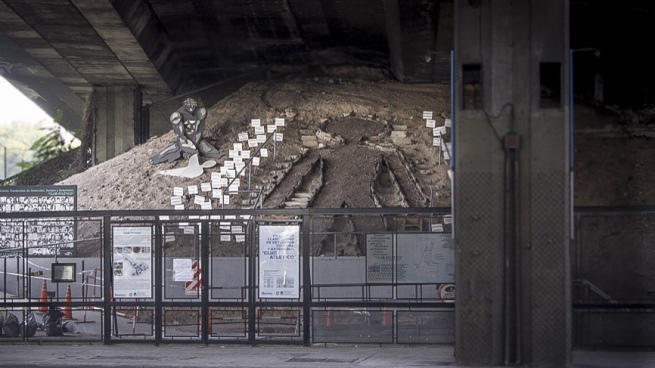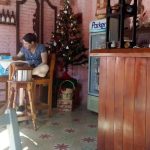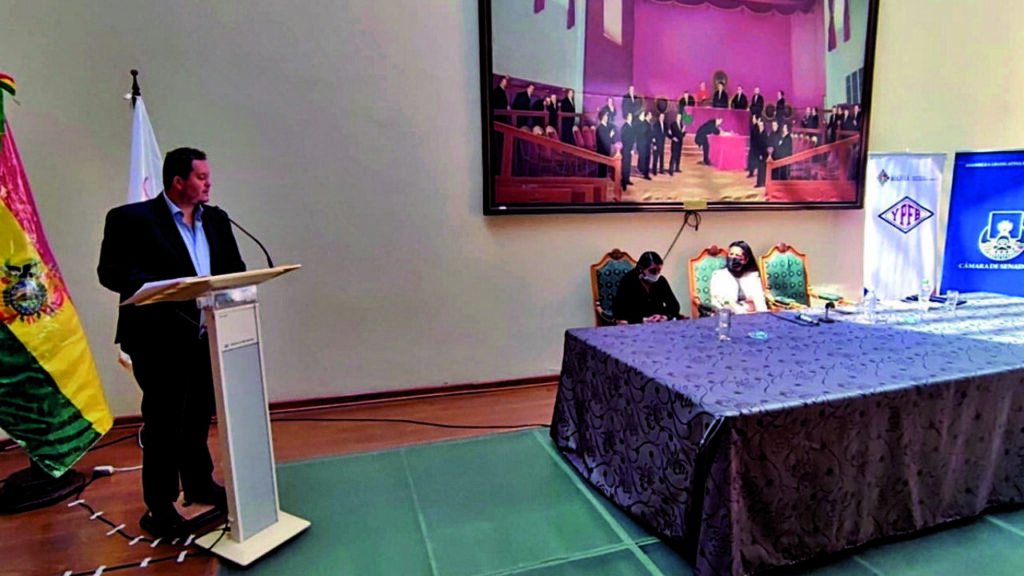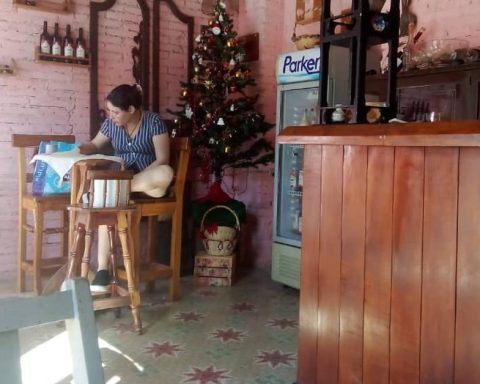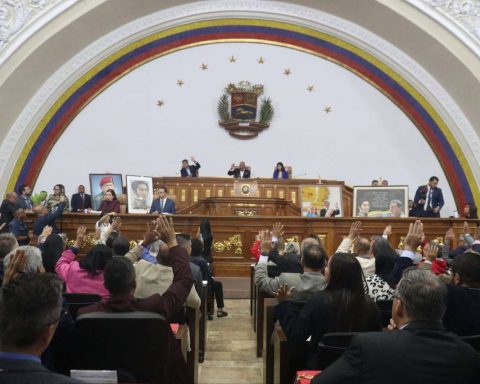After spending 45 years under the rubble, the clandestine center “El Atlético” -which worked in the last dictatorship under the orbit of the Federal Police in the city of Buenos Aires and through which some 1,500 victims of illegal repression passed- will be recovered now to be allocated to a Memory space.
“For us it is an important moment in terms of consecrating the value of Truth, in addition to the value of Justice and the moral reparation of the victims”Federal judge Daniel Rafecas, in charge of the so-called “megacause” of the First Army Corps, in the framework of which what happened in that clandestine center that operated until the end of 1977, told Télam.
The building, located on Paseo Colón and Cochabamba avenues in the lower area of the city of Buenos Aires, was demolished for the construction of the 25 de Mayo highway during the last civic-military dictatorship.
The court in charge of Rafecas formally handed over the property this week for the start of recovery tasks, after six years of earth removal work to access the site.
“10,000 cubic meters of earth were removed, with 1,500 trucks, there was an engineering work with the work of archaeologists and forensic anthropologists,” the judge pointed out.

As Rafecas explained, “You will be able to have access to all the basement facilities of the Federal Police Supply Division where the clandestine center has been operating since 1976” through which some 1,500 victims of illegal repression passed.
From now on, the National Archive of Memory and the Argentine Forensic Anthropology Team will carry out the work of recovering the basement that functioned as a clandestine center.
“The layout of the 25 de Mayo highway passed through there and then it was very opportune to demolish the building and bury what had been the center that worked in a basement. It was buried under 10,000 cubic meters of earth,” the judge recalled.
The earth covered 80% of the facilities and only the remaining 20 remained visible which was the part of the building that faced the street. In that basement was the torture room, called the “leonera” or the “cuchas”.
“For 45 years a mountain of land was placed on top of it,” added the federal judge in dialogue with Télam.
The project foresees the recovery of the place so that it is preserved as a place of memory, at the request of survivors and relatives of victims
“It’s like a time capsule, going back 45 years in a clandestine center that remains intact, we suspect that elements and rooms can be found beyond the walls,” Rafecas explained.
For the magistrate, “it is likely that they have not removed anything. Perhaps the furniture, but other things may have remained.”

“The idea is that it becomes a memory center. This was an initiative of the court, survivors and the site of memory, and we asked the collaboration of Autopistas Urbanas“, he recalled.
The clandestine detention center operated on Paseo Colón and Cochabamba avenues and it took six years to remove the earth to gain access to the subsoil.
In that place, the Supply and Workshops Service of the Administrative Division of the PFA was located and it is estimated that some 1,500 victims of the illegal repression were kidnapped there, most of whom are missing.
The property is declared a Historic Site since 2005 by the Legislature of the city of Buenos Aires and has been a national historic site since 2014.
The excavation was claimed by survivors, human rights organizations and neighborhoods.
The discovery of objects during the excavations served as evidence in the successive trials that were made against those accused of crimes against humanity committed in the place.
Since 2014, the property depends on the Secretary of Human Rights of the Nation.
This clandestine center joined a repressive circuit together with “Banco” and “Olimpo” under the purview of the federal and Buenos Aires policeas proven in different trials in which there were convictions for crimes against humanity, according to CELS, the plaintiff in all cases.
Atlético worked in the PFA Supplies division; Bank in Cuatrerismo of the police of the province of Buenos Aires in the Buenos Aires party of La Matanza and Olimpo in Maintenance of the PFA.
They all acted under the purview of the First Corps of the Army and are part of the mega-case being investigated in the Rafecas court.
Since 2010, 25 repressors have already been convicted and 3 were acquitted for crimes committed against hundreds of people who passed through these clandestine centers during the last civic-military dictatorship, according to data from the National Human Rights Secretariat, also a plaintiff in the cases.
